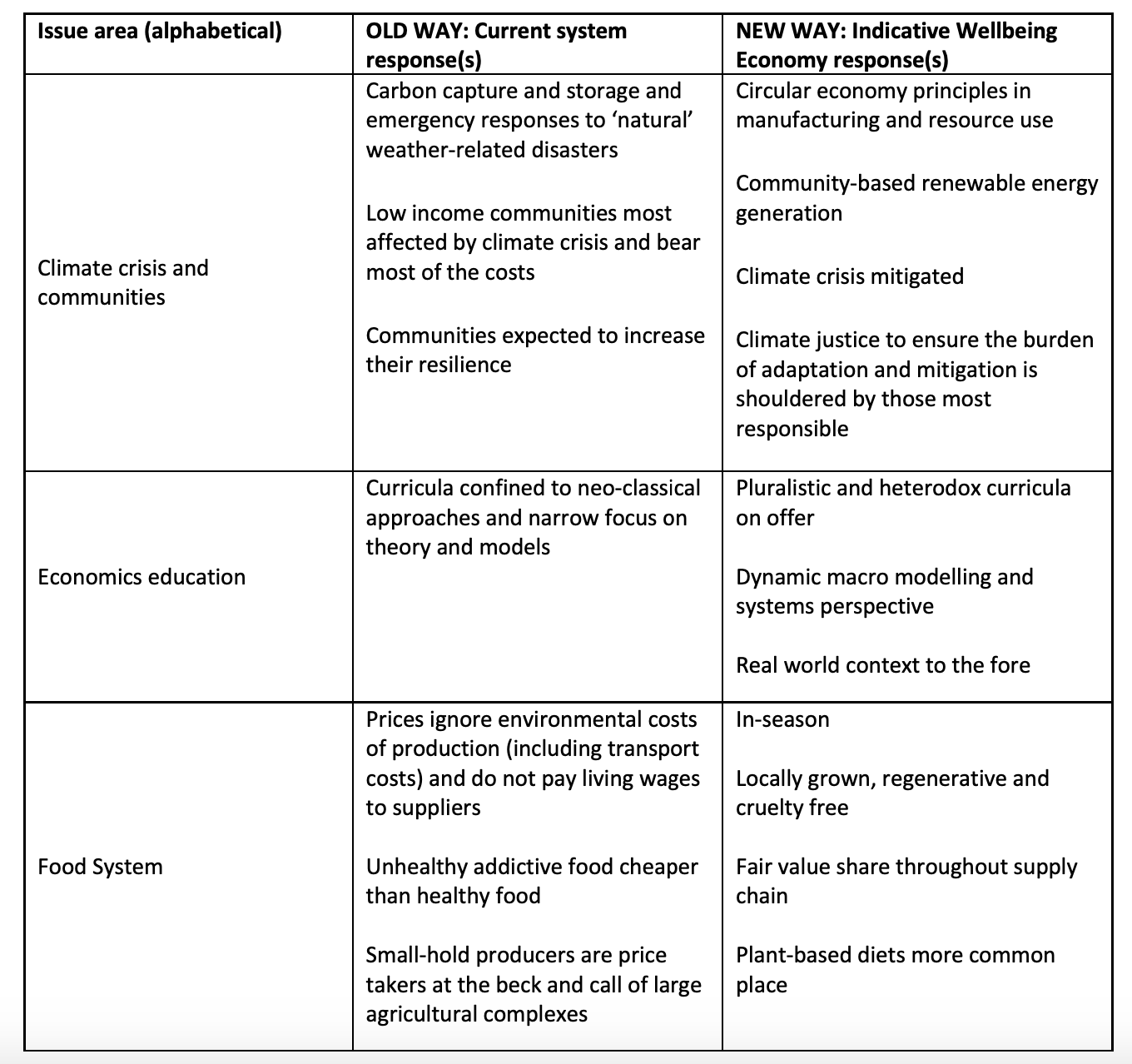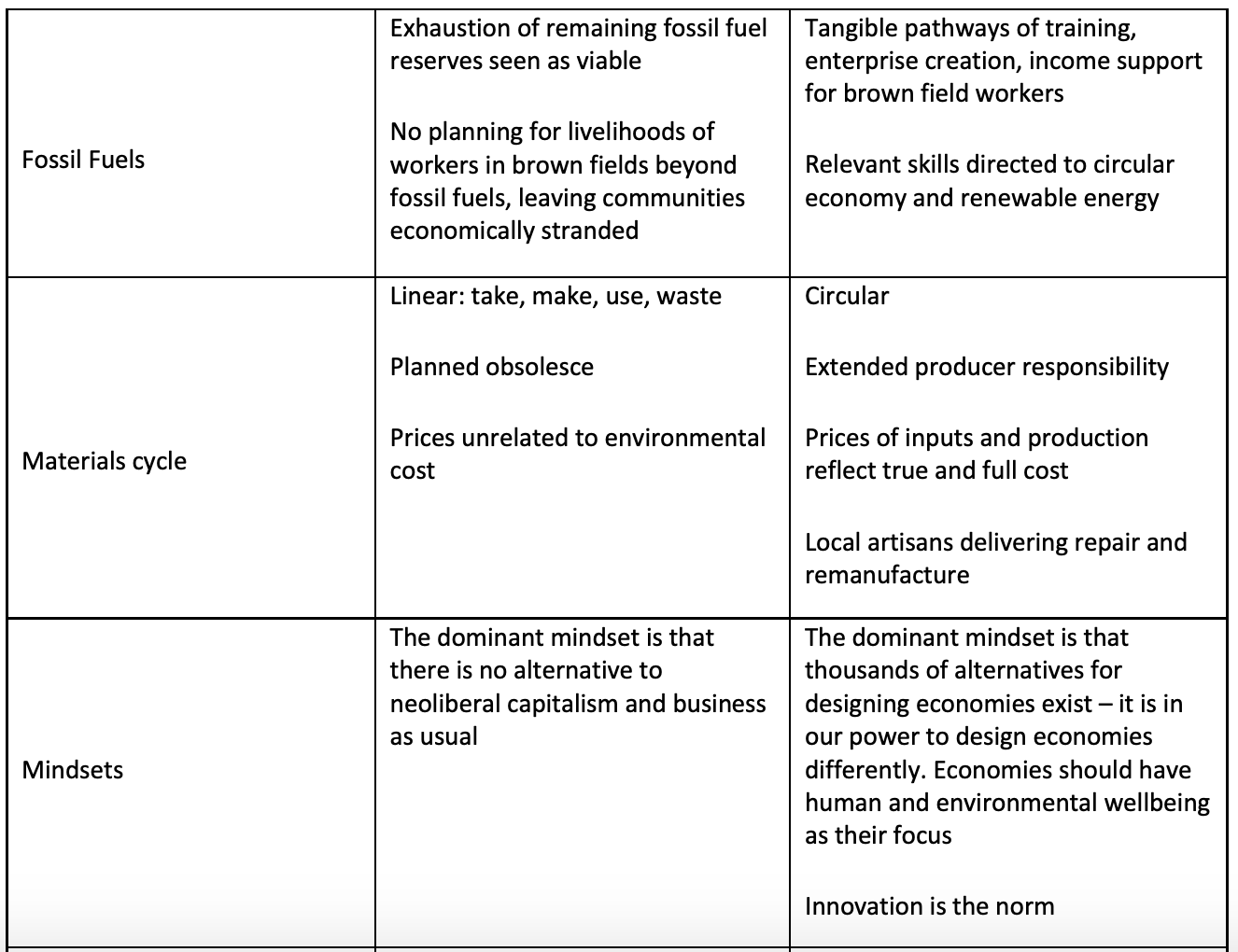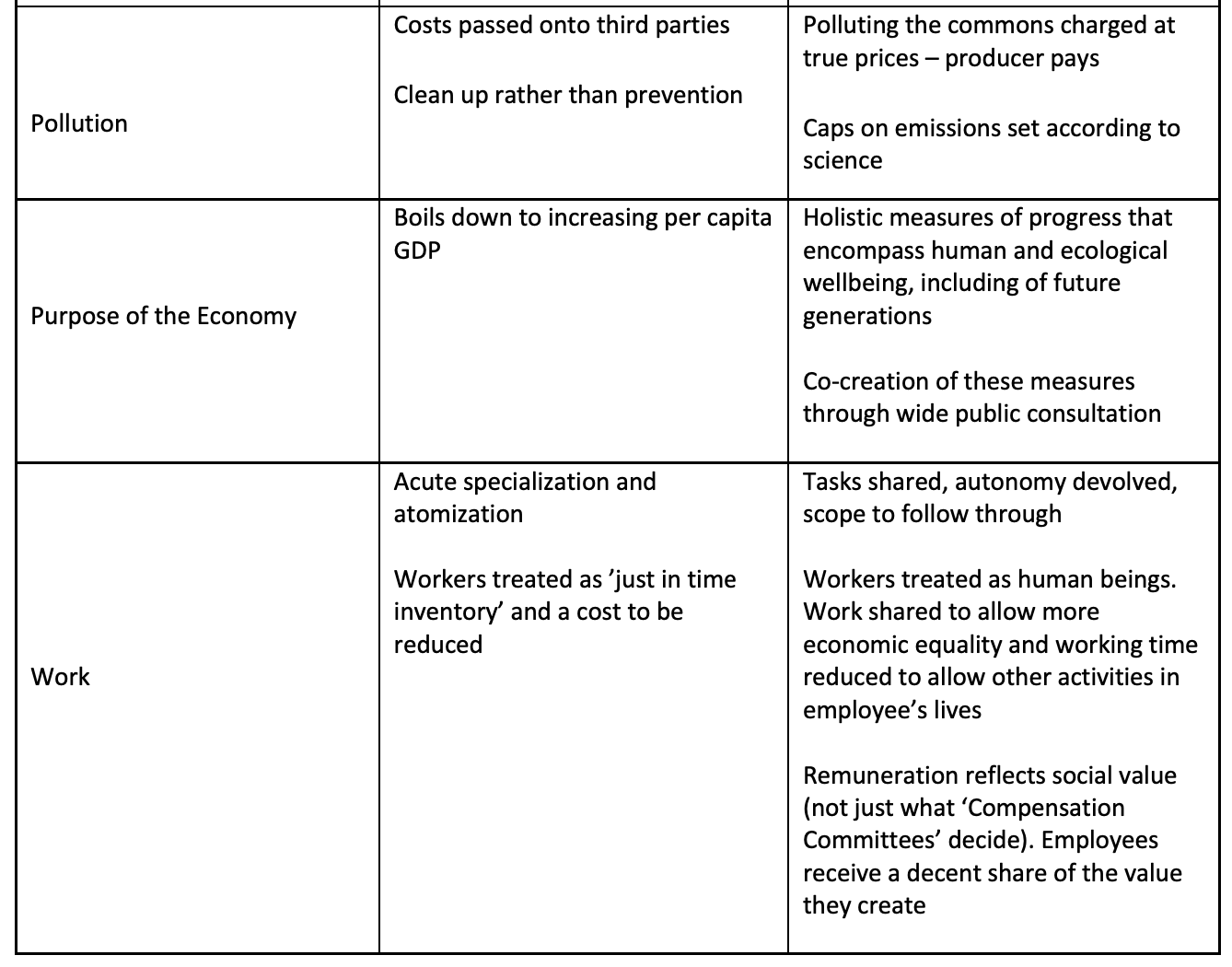The five "non-negotiables" of a wellbeing economy - compare them to the parties asking for your vote next week
From Autonomy
We’re going to keep flying low, but stlll some distance above the General Election fray (though we would point you to both Greenpeace’s and then Friends of the Earth’s climate-oriented assessments of the major parties manifestos).
This is partly because what we’re about is trying to invent new political language and practice. And partly because the massive trends we want communities to be empowered for - the coming damages of climate breakdown, the technological replacement of human labour - are poorly represented (though with some exceptions) in the major parties’ prospectuses.
So in lieu of any party endorsement - although see our Editorial at the end of the week, for thoughts on electoral options coming up - we cast a friendly vote for “What is a wellbeing economy? Different ways to understand the vision of an economy that serves people and planet”, by the WeAll Alliance, whose co-founder Katherine Trebeck is well represented in A/UK.
It’s a very useful summary paper, which lays out five “non-negotiables” of a wellbeing-oriented economy:
Dignity: Everyone has enough to live in comfort, safety and happiness
Nature: A restored and safe natural world for all life
Connection: A sense of belonging and institutions that serve the common good
Fairness: Justice in all its dimensions at the heart of economic systems, and the gap between the richest and poorest greatly reduced
Participation: Citizens are actively engaged in their communities and locally rooted economies
More here. But what we found particularly handy, for this coming and frenetic election week, are the tables below - which the WeAllAlliance call Old Way - New Way (their constantly updated version is here). But below is a snapshot of examples. If you’re looking for a voting guide, it may help you to compare any of the parties on how they measure on this divide.




